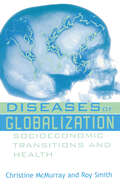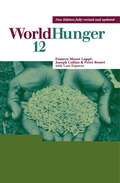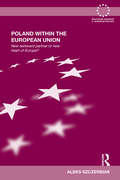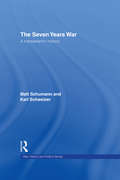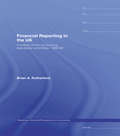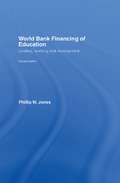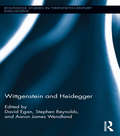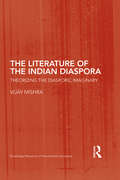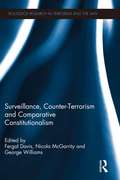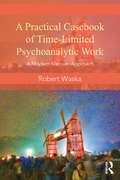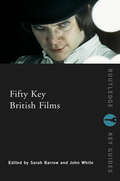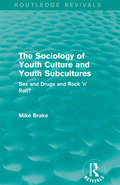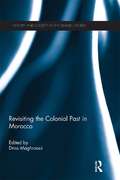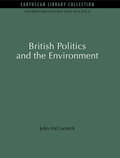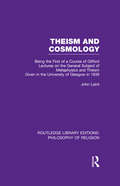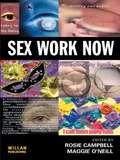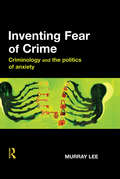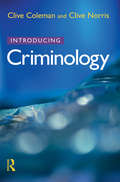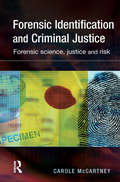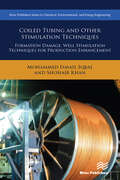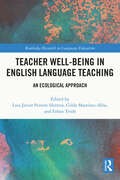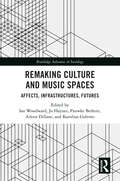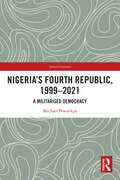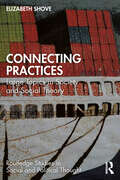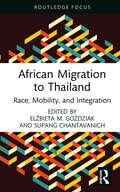Special Collections
Benetech’s Global Certified Accessible Titles
Description: Benetech’s GCA program is the first independent third-party EPUB certification to verify ebook accessibility. By creating content that is born accessible, publishers can meet the needs of all readers. Learn more: https://bornaccessible.benetech.org/
- Table View
- List View
Diseases of Globalization
by Roy Smith and Christine McMurrayThe emergence of a global economy has led to the erosion of local autonomy and national sovereignty with an associated emphasis on the spread of liberal, free-market economics. A clear divide is appearing between those benefiting from and those disadvantaged by this process. Among the most important consequences are changes in the patterns of health and the prevalence of disease. While infant mortality is declining in most countries, and many formerly prevalent diseases are being successfully tackled, the move from subsistence to cash economies brings with it changes in diet, alcohol consumption and high levels of smoking; with the result that non-communicable, 'lifestyle illnesses' such as heart disease and diabetes are spreading rapidly. Similarly, growing divisions of wealth add to the problem, bringing diseases relating to poverty and malnourishment as well as those caused by affluence and over-consumption. Issues covered in this book include equitable and sustainable modernization, the determinants of health, the process of marginalization, and survival strategies on the periphery. The authors draw on primary case study material, largely from societies in the Pacific region undergoing modernization, to provide invaluable information for tracking and assessing the full impacts of these changes.
World Hunger
by Joseph CollinsThe revised edition of this text includes substantial new material on hunger in the aftermath of the Cold War; global food productioin versus population growth; changing demographics and falling birth rates around the world; the shifting focus of foreign assistance in the new world order; structural adjustment and other budget-slashing policies; trade liberalization and free trade agreements; famine and humanitarian interventions; and the thrid worldization of developed nations.
Poland Within the European Union
by Aleks SzczerbiakThis book examines the first five years of Polish EU membership. The combination of Poland’s potential power as a major, and possibly controversial, player in both the region and Europe as a whole, and the apparent salience of Euroscepticism in domestic electoral politics at the core of the Polish government and party system presented the possibility that Poland would be a ‘new awkward partner’ in Europe. However, although Poles may have voted for EU-critical parties in large numbers no ‘Eurosceptic backlash’ has emerged. In fact, far from being a ‘new awkward partner’, Poland has tried to portray itself as the ‘new heart of Europe’ and it certainly came to be increasingly perceived as such in Brussels and by its European allies. This book focuses on two linked questions. Firstly, what impact has Poland had upon the EU as a new member state? Secondly, how has becoming an EU member impacted upon public attitudes towards the EU and Polish domestic politics, particularly on its party and electoral politics? Szczerbiak provides the first detailed empirical case study of the impact of Poland’s EU membership on its politics and of Poland's impact on the EU. The book also makes broader theoretical contributions to our understanding of EU relations with its member states. As a result of the above, this book will be of interest to students and scholars of European Politics, political science and European integration.
The Seven Years War
by Matt Schumann and Karl W. SchweizerThe Seven Years War has been described as the first global conflict in history. It engulfed the Euro-Atlantic world from 1756 to 1763, and engaged the energies of European cabinets as never before. More than previous conflicts, the Seven Years War involved a variety of approaches to war, and taxed the military, material and moral resources of the powers involved. Drawing on a diverse array of archival, printed primary and secondary sources, The Seven Years War: A Transatlantic History covers the war’s origins, its conduct on land and at sea, its effects on logistics and finance, its interactions with domestic politics, its influence on international relations and its approach to peace. The book highlights the role of personality, alongside the enduring importance of communication, misperception and understanding. In so doing, it endeavours not merely to chronicle the war’s events, but to situate them in the context of mid-eighteenth century warfare, finance, politics and diplomacy. The Seven Years War will be of great interest to students of the European history, American history, maritime history, diplomatic and military history.
Financial Reporting in the UK
by B.A. RutherfordWritten by a well-known author, this book makes a major contribution to the history of financial reporting, exploring the current and international aspects of standard setting. Compiled through consultation of a considerable amount of relevant literature and interviews with a large number of key players of the ASC, it analyzes the big ‘set battles’ between standard setters and preparers of financial statements, over topics such as price change accounting, goodwill, and leasing and foreign currency translation, the stand-offs which delayed development in specific areas and the smaller skirmishes which impeded the work of improving financial reporting. It covers a range of topics, including: the formulation of standards on specific topics the evolution of the institutional machinery of standard-setting the politics of standard-setting the theory of accounting standardization the emergence of a conceptual framework for financial reporting. A fine account of the period following the 1960s, charting the history of the Accounting Standards Committee, this book is an essential resource for business and finance students.
World Bank Financing of Education
by Phillip W. JonesBased on detailed analysis of thousands of confidential World Bank documents, this book demonstrates that the World Bank lies at the centre of the major changes in global education of our time. It outlines the evolution of World Bank lending policies in education, and assesses the policy impact of the Bank's educational projects, looking at how it has: shaped the economic and social policies of many governments, including policies that affect education been an influential proponent of the rapid expansion of formal education systems around the world, financing much of that expansion been instrumental in forging those policies that see education as a precursor to modernisation served as a major purveyor of Western ideas about how education and the economy are, or should be, related. Following on from the success of the first edition, this revised edition covers topical issues of globalisation and looks into the political debate concerning aid to developing countries. It will be of enormous value to those studying, or working in, educational policy in developing countries, international organisations and financial institutions, and aid agencies.
Wittgenstein and Heidegger
by Stephen Reynolds and David Egan and Aaron James WendlandLudwig Wittgenstein and Martin Heidegger are arguably the two most influential philosophers of the twentieth century. Their work not only reshaped the philosophical landscape, but also left its mark on other disciplines, including political science, theology, anthropology, ecology, mathematics, cultural studies, literary theory, and architecture. Both sought to challenge the assumptions governing the traditions they inherited, to question the very terms in which philosophy’s problems had been posed, and to open up new avenues of thought for thinkers of all stripes. And despite considerable differences in style and in the traditions they inherited, the similarities between Wittgenstein and Heidegger are striking. Comparative work of these thinkers has only increased in recent decades, but no collection has yet explored the various ways in which Wittgenstein and Heidegger can be drawn into dialogue. As such, these essays stage genuine dialogues, with aspects of Wittgenstein’s elucidations answering or problematizing aspects of Heidegger’s, and vice versa. The result is a broad-ranging collection of essays that provides a series of openings and provocations that will serve as a reference point for future work that draws on the writings of these two philosophers.
The Literature of the Indian Diaspora
by Vijay MishraThe Literature of the Indian Diaspora constitutes a major study of the literature and other cultural texts of the Indian diaspora. It is also an important contribution to diaspora theory in general. Examining both the ‘old’ Indian diaspora of early capitalism, following the abolition of slavery, and the ‘new’ diaspora linked to movements of late capital, Mishra argues that a full understanding of the Indian diaspora can only be achieved if attention is paid to the particular locations of both the ‘old’ and the ‘new’ in nation states. Applying a theoretical framework based on trauma, mourning/impossible mourning, spectres, identity, travel, translation, and recognition, Mishra uses the term ‘imaginary’ to refer to any ethnic enclave in a nation-state that defines itself, consciously or unconsciously, as a group in displacement. He examines the works of key writers, many now based across the globe in Canada, Australia, America and the UK, – V.S. Naipaul, Salman Rushdie, M.G. Vassanji, Shani Mootoo, Bharati Mukherjee, David Dabydeen, Rohinton Mistry and Hanif Kureishi, among them – to show how they exemplify both the diasporic imaginary and the respective traumas of the ‘old’ and ‘new’ Indian diasporas.
Surveillance, Counter-Terrorism and Comparative Constitutionalism
by George Williams and Nicola McGarrity and Fergal DavisThe decade after 11 September 2001 saw the enactment of counter-terrorism laws around the world. These laws challenged assumptions about public institutions, human rights and constitutional law. Those challenges are particularly apparent in the context of the increased surveillance powers granted to many law enforcement and intelligence agencies. This book brings together leading legal scholars in the field of counter-terrorism and constitutional law, and focuses their attention on the issue of surveillance. The breadth of topics covered in this collection include: the growth and diversification of mechanisms of mass surveillance, the challenges that technological developments pose for constitutionalism, new actors in the surveillance state (such as local communities and private organisations), the use of surveillance material as evidence in court, and the effectiveness of constitutional and other forms of review of surveillance powers. The book brings a strong legal focus to the debate surrounding surveillance and counter-terrorism, and draws important conclusions about the constitutional implications of the expansion of surveillance powers after 9/11.
A Practical Casebook of Time-Limited Psychoanalytic Work
by Robert WaskaModern Kleinian Therapy is a model of effective psychoanalytic work that offers relief to deep internal conflicts by establishing and maintaining analytic contact, and beginning to unravel, modify, and heal turbulent and torn minds. This book defines Modern Kleinian Therapy as a modality for treating severely affected patients in a fairly traditional psychoanalytic manner, even when the environment or frequency of sessions are compromised. Chapter by chapter the book provides detailed clinical material to illustrate the complex dynamics that unfold when working with more closed off patients, and each case report shows the often limited clinical situations that the contemporary analyst must contend with. The book's detailed material serves to emphasize the nature of psychoanalytic work with individuals and couples, who otherwise rarely find their way to healthy attachment or reciprocal whole object relational harmony. Included in the book: * Technical and theoretical methods of Modern Kleinian Therapy * Psychoanalytic treatments to modify internal object relational conflicts * The Modern Kleinian Therapy approach to couple's treatment * The value of analytic contact. A Practical Casebook of Time-Limited Psychoanalytic Work: A Modern Kleinian Approach introduces new aspects of Kleinian work and offers a contemporary view on Kleinian techniques and concepts. It will be valuable reading for psychotherapists, mental health workers, and psychoanalytic therapists.
Fifty Key British Films
by John White and Sarah BarrowIn Fifty Key British Films, Britain's best known films such as Clockwork Orange, The Full Monty and Goldfinger are scrutinised for their outstanding ability to articulate the issues of the time. This is essential reading for anyone interested in quality, cult film.
The Sociology of Youth Culture and Youth Subcultures
by Michael BrakeFirst published in 1980, this book argues that subcultures are formed in defence of collectively experienced problems that arise from defects and contradictions in social structures. Mike Brake looks at the development of post-war youth culture in a sociological context and considers the class base of youth subcultures, showing that they generate a form of collective identity from which an individual identity can be achieved, outside that ascribed by class, education or occupation. Black youth and young females are two groups given special attention here since Brake notes they are prone to particular problems resulting from the racism and sexism inherent in much youth culture.
Revisiting the Colonial Past in Morocco
by Driss MaghraouiExploring the concept of ‘colonial cultures,’ this book analyses how these cultures both transformed, and were transformed by, their various societies. Challenging both the colonial vulgate, and the nationalist paradigm, Revisiting the Colonial Past in Morocco, examines the lesser known specificities of particular moments, practices and institutions in Morocco, with the aim of uncovering a ‘new colonial history.’ By examining society on a micro-level, this book raises the profiles of the mass of Moroccans who were highly influential in the colonial period yet have been excluded from the historical record because of a lack of textual source material. Introducing social and cultural history, gender studies and literary criticism to the more traditional economic, political and military studies, the book promotes a more complex and nuanced understanding of Moroccan colonial history. Employing new theoretical and methodological approaches, this volume encourages a re-assessment of existing work and promotes a more interdisciplinary approach to the colonial history of Morocco. Revisiting the Colonial Past in Morocco is a highly topical and useful addition to literature on the subject and will be of interest to students and scholars of History, Imperialism and more generally, Middle Eastern Studies.
British Politics and the Environment
by John McCormickBritain has an immense range of environmental law and the reputation for largely ignoring it. John McCormick describes the fascinating story of the political growth of that law, and the pressures, the compromises, the parliamentary and civil service opportunism that allowed the edifice to grow over the greater part of a century. He tells the story of the absolute change in political climate over the last ten years and deciphers the nature of Thatcher's ''conversion'' to greenery. He explains why everyone who cared about the environment became embattled and, above all, how the old methods of sensible compromise were banished, probably for ever, not least because of the government's obsession with secrecy. What, then, are the new political means of compelling change on a reluctant parliament? Everything is at stake from welfare to water, from forests to fishing. Where are we now? What are the likely pressures, both internal and from Europe and the rest of the world, to make Britain pass more environmentally sound laws and, perhaps more importantly, to observe them? McCormick provides a gripping picture of the central issues, of the system and of the battleground. Originally published in 1991
Theism and Cosmology
by John LairdTheism is one of the major types of metaphysics and cosmology is the general theory of the whole wide world. Must the world have an over-worldly source, or any source? Would "space" crumble unless God perpetually sustained it by his brooding omnipresence? Is all power, properly understood, divine power? These large questions, never out of date, are examined by Professor Laird in the light of contemporary philosophy. This seminal work, originally published in 1940 is a lucid and profound discussion in theological philosophy.
Sex Work Now
by Maggie O'Neill and Rosie CampbellSex Work Now provides an authoritative overview of female sex work and policy in the UK, and addresses a number of key contemporary issues and debates. These include sex worker unionization, migrant sex work and trafficking, communities and sex work, male clients of sex workers, the policing of prostitution, zoning of street sex work, young people and sexual exploitation, drug use and sex work, exiting, violence and sex work. Throughout the book is shaped by the lives and experiences of sex workers themselves drawing on applied, policy or participatory action research. This book approaches the subject from an interdisciplinary perspective, cutting across conventional boundaries of sociology, criminology, politics and social policy. Contributors to the book include academics, researchers, practitioners and activists who are among the leading commentators on prostitution in the UK. provides overview of sex work in UK considers impact of recent legislation and policy, especially Sex Offences Act 2003 focus on lives and experiences of sex workers themselves
Inventing Fear of Crime
by Murray LeeOver the past four decades the fear of crime has become an increasingly significant concern for criminologists, victimologists, policy makers, politicians, police, the media and the general public. For many practitioners reducing fear of crime has become almost as important an issue as reducing crime itself. The identification of fear of crime as a serious policy problem has given rise to a massive amount of research activity, political discussion and intellectual debate. Despite this activity, actually reducing levels of fear of crime has proved difficult. Even in recent years when many western nations have experienced reductions in the levels of reported crime, fear of crime has often proven intractable. The result has been the development of what amounts to a fear of crime industry. Previous studies have identified conceptual challenges, theoretical cul-de-sacs and methodological problems with the use of the concept fear of crime. Yet it has endured as both an organizing principal for a body of research and a term to describe a social malady. This provocative, wide ranging book asks how and why fear of crime retains this cultural, political and social scientific currency despite concerted criticism of its utility? It subjects the concept to rigorous critical scrutiny taking examples from the UK, North America and Australia. Part One of Inventing Fear of Crime traces the historical emergence of the fear of crime concept, while Part Two addresses the issue of fear of crime and political rationality, and analyses fear of crime as a tactic or technique of government. This book will be essential reading on one of the key issues in government and politics in contemporary society.
Introducing Criminology
by Clive Norris and Clive ColemanCriminology, or the study of crime, has developed rapidly as a subject in recent years, while crime and the problem of how to respond to it have become major concerns for society as a whole. This book provides a succinct, highly readable - and much needed - introduction to criminology for those who want to learn more, whether they are already studying the subject, thinking of doing so, or just interested to discover what criminology is about. Introducing Criminology begins by asking basic questions: what is crime? what is criminology?, before examining the ways in which crime has been studied, and looking at the main approaches and schools of thought within criminology and how these have been developed. The authors focus particularly upon attempts to understand and explain crime by the disciplines of psychology and sociology, and consider also the impact of feminist and postmodern thought on the development of the subject. In the second part of the book the authors take three very different topics to illustrate themes raised in the first half of the book, exploring the particular issues raised by each topic, and showing how criminologists have gone about their work.
Forensic Identification and Criminal Justice
by Carole McCartneyThis book provides an account of the development of forensic identification technologies and the way in which this has impacted upon the legal system. It traces the advent of forensic identification technologies, focusing on fingerprinting and forensic DNA typing, and their growing deployment within the criminal justice system. It also elucidates the ways in which these new technologies are accelerating procedural changes to investigative practices, and shows the ways in which in some areas human rights (such as privacy rights and rights against discrimination) are coming under threat. The use of forensic evidence in criminal investigations and trials is analysed in detail. This book uncovers the way in which this new reliance on forensic technologies has gained a foothold within the criminal justice system, and the risks and dangers that this can pose. The National DNA Database provides a particular focus of attention. The author seeks to move beyond an approach that has seen forensic DNA profiling as error free, situating her analysis within broader risk discourses.
Coiled Tubing and Other Stimulation Techniques
by Mohammed Ismail IqbalGood engineers never stop looking for opportunities to improve the performance of their production systems. Performance enhancement methods are always carefully examined, and production data is analyzed in order to identify determining factors affecting performance.The two main activities of the production engineer in the petroleum and related industries are reservoir stimulation and artificial lift. The classic solution to maximizing a well's productivity is to stimulate it. The basis for selecting stimulation candidates should be a review of the well's actual and theoretical IPR. Low permeability wells often need fracturing on initial completion. In low permeability zones, additional post stimulation production can be significant to the economics, however, the production engineer needs to make management aware of the true long term potential or else overly optimistic projections can easily be made.The main purpose of stimulation is to enhance the property value by the faster delivery of the petroleum fluid and/or to increase ultimate economic recovery. The aim of reservoir stimulation is to bypass near-wellbore damage and return a well to its “natural” productivity / injectivity, to extend a conductive path deep into a formation and thus increase productivity beyond the natural level and to produce hydrocarbon from tight formation.The importance of reservoir stimulation is increasing due to following reasons: • Hydrocarbon fields in their mid-life• Production in these fields are in declining trend• The thrust area: Enhancement of productionHence, to improve productivity of the well matrix stimulation and hydraulic fracturing are intended to remedy, or even improve, the natural connection of the wellbore with the reservoir, which could delay the need for artificial lift.This book presents procedures taken in the Oil & Gas Industry for identifying well problems, and it suggests means of solving problems with the help of the Coil Tube unit which is used for improving well productivity and techniques like Acidizing and Hydraulic Fracturing.
Teacher Well-Being in English Language Teaching
by Luis Javier Pentón Herrera and Gilda Martínez-Alba and Ethan TrinhThis edited volume brings the important topic of teacher well-being to the fore, presenting a range of high quality and cutting-edge contributions that illuminate, advance and educate readers on the challenges and criticality of achieving teacher well-being in English language teaching (ELT). Taking Sarah Mercer’s call for action to make teacher well-being a priority in the ELT field, and adopting an ecological perspective reflective of the stance that teacher well-being is a societal duty and not a personal responsibility, the contributors present theoretically and methodologically innovative research studies from all around the world. The term ‘teacher’ is used to refer to those who deliver English instruction in a variety of formal and informal educational settings and at different levels including K-12 schools, adult education, higher education, teacher education programs, and in community organizations. Chapters offer clear implications for research and practice, and explore effective practices and interventions that can contribute to the improvement of teacher well-being overall. Addressing a profession which is not only characterized as being filled with high levels of stress, but delving into specific challenges around ELT in particular, the authors crucially speak to themes around the additional emotional investment and labor which come with being an English language teacher. As such, it will appeal to academics and researchers in the field of English language teaching, including scholar-practitioners, and teacher educators.
Remaking Culture and Music Spaces
by Ian Woodward, Jo Haynes, Pauwke Berkers, Aileen Dillane, and Karolina GolemoThis collection analyses the remaking of culture and music spaces during the ongoing COVID-19 pandemic. Its central focus is how cultural producers negotiated radically disrupted and uncertain conditions by creating, designing, and curating new objects and events, and through making alternative combinations of practices and spaces. By examining contexts and practices of remaking culture and music, it goes beyond being a chronicle of how the pandemic disrupted cultural life and livelihoods. The book also raises crucial questions about the forms and dynamics of post-pandemic spaces of culture and music. Main themes include the affective and embodied dimensions that shape the experience, organisation, and representation of cultural and musical activity; the restructuring of industries and practices of work and cultural production; the transformation of spaces of cultural expression and community; and the uncertainty and resilience of future culture and music. This collection will be instrumental for researchers, practitioners, and students studying the spatial, material, and affective dimensions of cultural production in the fields of cultural sociology, cultural and creative industries research, festival and event studies, and music studies. Its interdisciplinary nature makes it beneficial reading for anyone interested in what has happened to culture and music during the global pandemic and beyond.
Nigeria's Fourth Republic, 1999-2021
by Michael NwankpaThis book reflects on Nigeria’s fourth republic, the country’s longest democratic period since it gained independence from Great Britain. It argues that although constitutional or political democracy has lasted for over two decades in Nigeria and seen three successful democratic changes of power, Nigeria’s democracy remains largely militarised. During Nigeria’s fourth republic, political and socio-economic affairs have been increasingly dominated by a pervasive military presence and ideology, which has seen a redistribution of resources and government funds away from social programmes into an increase in security budgets, weapons proliferation, and internal military interventions and occupations. This institutionalisation of violence has turned the country into a national security state where the rule of force and violence rather than dialogue and compassion reflect everyday reality. Whilst acknowledging the history of militarisation during colonial and military rule, this book makes a compelling argument for considering the distinct character of the Nigerian nation state’s path to militarisation over the last 20 years of experimentation with democracy. This book’s fresh insights into the fourth republic’s path to militarisation will be of interest to researchers of African politics, security and development.
Connecting Practices
by Elizabeth ShoveConnecting Practices develops a distinctive method of conceptualising significant trends and global issues including environmental sustainability and inequalities in wealth and health, arguing that these are outcomes of the ways in which social practices interact and combine across space and time. Engaging with the question of how connections are made between practices and how past and present combinations make some futures more likely than others, this book brings practice theory to bear on large problems in society. Richly illustrated with examples from the spreading of germs to the history of shipping containers, this powerful analysis of how societies hang together and how they change will appeal to scholars and students of sociology and social theory.
African Migration to Thailand
by Elżbieta M. Goździak and Supang ChantavanichThis book, based on exploratory ethnographic research, analyzes the experiences of African migrants in Thailand. Thailand has always been a regional migration hub with Africans being the most recent. Sitting at the intersection of race and migration studies, this book focuses on the challenges Black and labor migrants face trying to integrate into a society that has had very limited contact with and knowledge about Black Africans. Bringing together research from African, Thai, and European scholars, this volume focuses on forced migrants, such as Somali asylum seekers, and labor migrants, largely African men seeking better livelihoods in niche economies such as gem trading, garment wholesale, and football playing and coaching. The book also includes theoretical contributions to the understanding of precarity and human security, the concept of in/visibility to analyze the challenges African migrants face in Thailand as well as the concept of othering to understand discrimination against Africans. The book also analyzes the Thai migration policy context and the challenges facing Thai policy-makers, law enforcement representatives, and the migrants themselves. While not comparative in nature, this volume directly connects with studies of Africans in other parts of Asia, especially China. Addressing an important gap in migration research, this book will be of interest to researchers across the fields of migration and mobility studies, African Studies, and Asian Studies.
